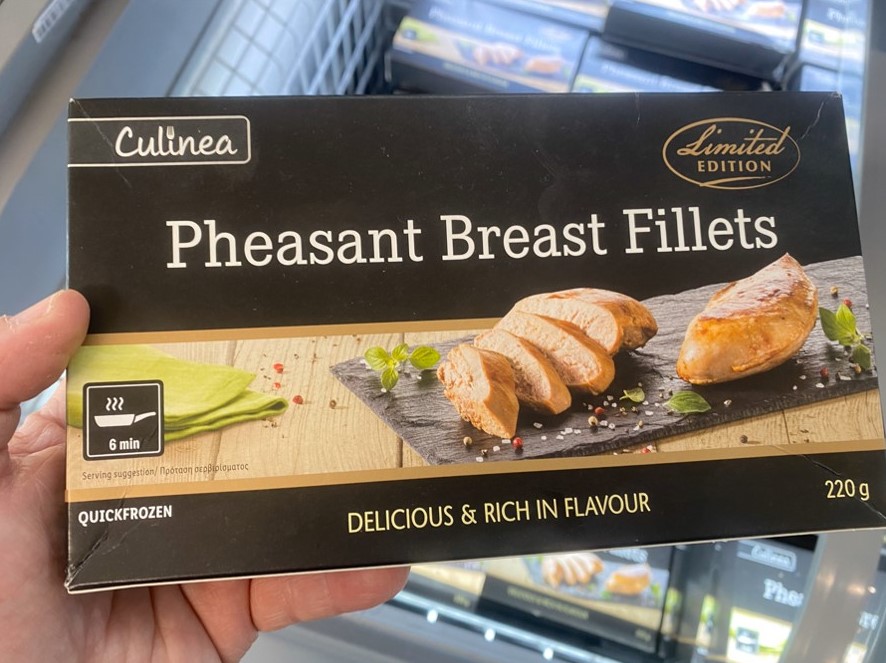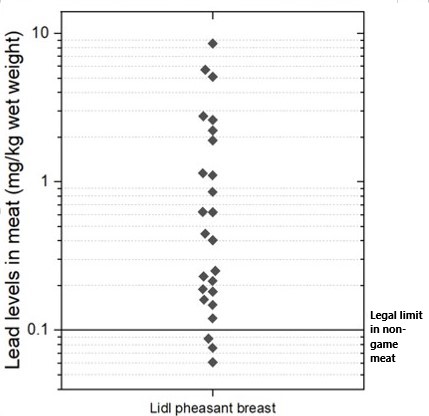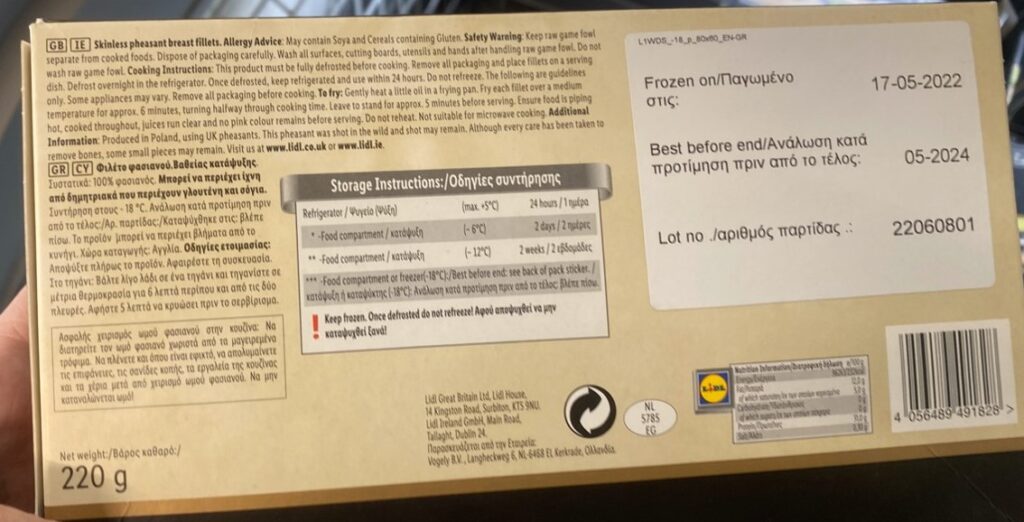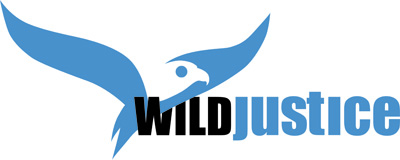Pheasant breasts sold by Lidl contaminated with lead levels up to 85 x higher than legal limit set for non-game meat
Lead-contaminated Pheasant breasts are on sale at Lidl supermarkets across Northern Ireland and the Republic of Ireland, new research by Wild Justice has found.
- Tests on frozen Pheasant breasts bought from Lidl stores found lead levels at up to 85 times higher than the legal limit set for beef, pork, chicken etc;
- 88% of samples tested positive for potentially dangerous amounts of lead;
- Findings indicate the voluntary phasing out of lead shot by the shooting industry hasn’t prevented lead contamination of meat three years after its announcement;
- Packaging information reveals the Pheasants were shot in UK, processed in Poland, then shipped to Northern Ireland & RoI to be sold at Lidl stores
We bought 25 samples of frozen Pheasant breasts from seven Lidl stores across Northern Ireland & the Republic of Ireland in February 2023 and had them tested for lead levels using methods previously described (here) for tests we have conducted on game meat bought from other supermarkets.

Five of the 25 packs contained whole shot, which was removed and tested to confirm it was lead (which was the case for all five samples). Even after the whole shots had been removed, 22 of the 25 samples still contained lead levels over the legal limit set for livestock meat, with one sample containing a lead level 85 times higher than the legal limit set for livestock meat.

This excessively-high lead content found in 22 samples isn’t illegal for gamebird meat sold in the UK because currently (and inexplicably) there is no legal limit for lead levels in wild game meat such as Pheasant, partridges, grouse and venison, only for meat such as pork, beef and chicken etc, which is really quite non-sensical given that gamebirds are routinely shot with toxic lead ammunition but pigs, cattle and chickens are not.
We couldn’t see any public health warning on the Lidl packaging.
Our findings on the high lead content of pheasant breasts sold in Lidl stores don’t come as any surprise as they align with the results of previous tests we’ve undertaken on gamebird meat sold in Sainsbury’s, Waitrose, Harrods, and by three independent game dealers, over the last two years (e.g. here, here, here, here, here, here). Our results also align with the results of a recently published peer-reviewed study conducted by scientists at the University of Cambridge (here).
What is surprising about the Lidl Pheasants, however, is the very strange apparent route to market.
The packaging of the Lidl Pheasant breasts includes the following statement:
‘Produced in Poland, using UK pheasants‘.

So it looks like Pheasants that were shot in the UK (whether this includes Northern Ireland or not isn’t clear) were then shipped to Poland to be processed (carved up), and then the Pheasant breasts were shipped to Northern Ireland and the Irish Republic to be put on the shelves of various Lidl stores. That’s hardly a sustainable model, is it?!
Furthermore, it has previously been reported (here) that the UK has imported over 1.2 million ready-to-hatch Pheasant eggs from game farms in Poland to be reared and released into the UK countryside as live targets for recreational shooters. Are these the same Pheasants we’re then exporting back to Poland for processing, or are those different Pheasants?
What’s also odd is the stated date the Pheasant breasts were frozen (17th May 2022 according to the Lidl packaging shown in the photo above). Given the Pheasant-shooting season closes on 31st January (in Northern Ireland) and 1st February (rest of the UK), and assuming these Lidl Pheasants were all shot on the last day of the season, where and how were these shot Pheasant carcasses stored for at least 3.5 months if they weren’t frozen prior to export? Or were they frozen prior to export, defrosted in Poland, and then refrozen for transfer to NI and the RoI?
Something seems very amiss here with this whole set-up and deserves closer investigation…
